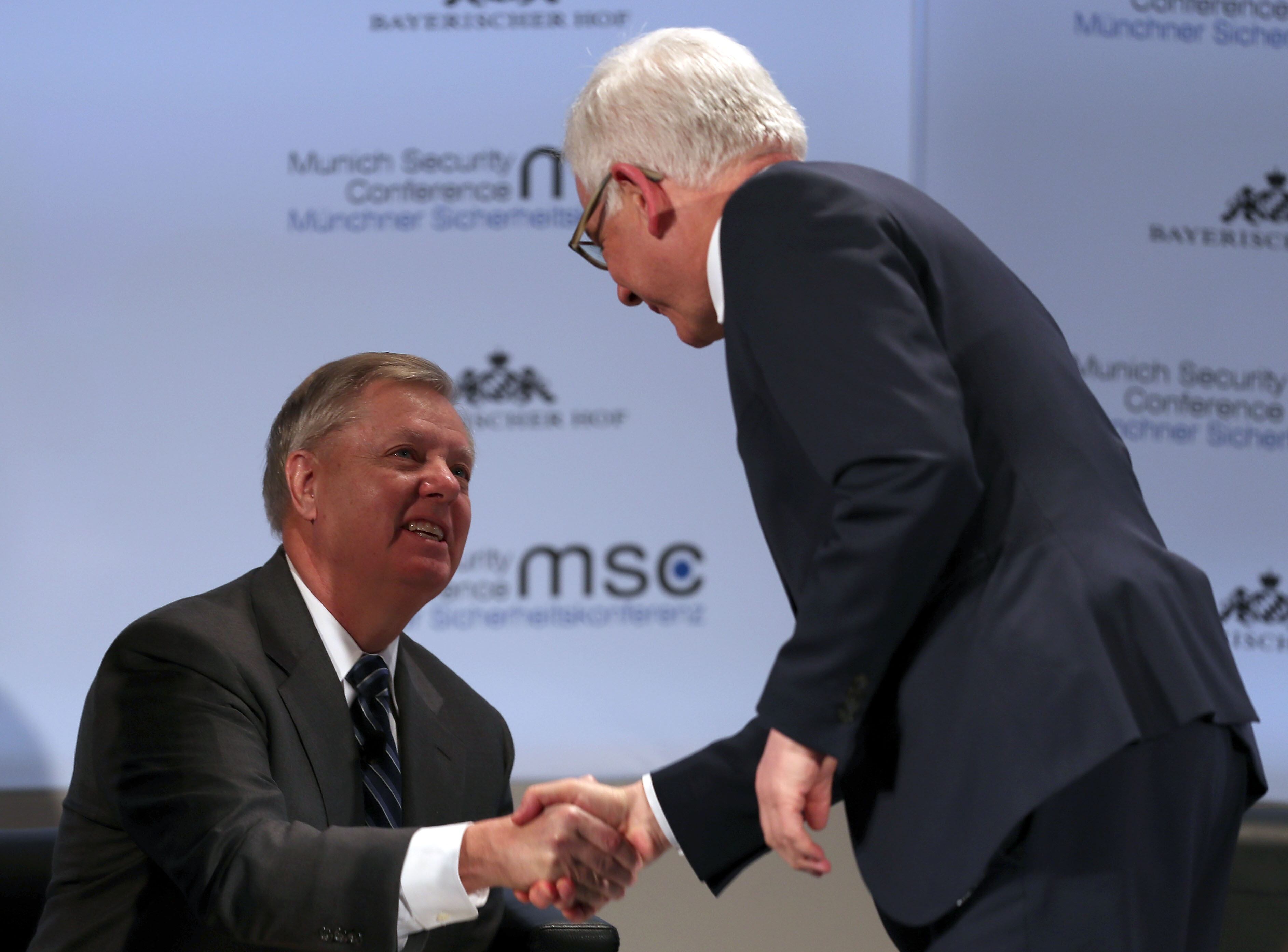MUNICH – German Chancellor Angela Merkel wants China to join negotiations about saving the Intermediate-Range Nuclear Forces Treaty.
She made the appeal at the Munich Security Conference on Feb. 16, directing her words at the highest-ranking Chinese government official in the audience, Yang Jiechi, member of the Politburo and director of the Office of Foreign Affairs. “I know there are many reservations, but we would be delighted” about Chinese participation,” she said.
Merkel warned that Russia and the United States walking away from the 1987 pact could result in a new arms race in Europe. While the agreement was between Washington and Moscow, it has been key for Germany’s and Europe’s security for decades, she said.
The United States announced weeks ago that it was retreating from the pact, reacting to what U.S. and European leaders believe is a years-long history of Russian violations. Moscow in turn also announced it would no longer be bound by it.
RELATED

The treaty prohibits the fielding of short-range and intermediate-range missiles in Europe.
Merkel’s public invitation of China to join the pact – or whatever may follow it – comes as officials have for some time lamented that Beijing’s absence from the treaty has left a key blind spot in the global equilibrium of such weapons.
Experts here said the chances of China jumping on the German chancellor’s plea are dim. “It is very unlikely that China would give up their missiles,” said Kori Schake deputy director-general of the International Institute for Strategic Studies. A large portion of the country’s arsenal would be prohibited under the INF Treaty terms, including the class of weapons directed at Taiwan, she said.
NATO Secretary General Jens Stoltenberg said Russia has six months to come back in compliance with the treaty, and that efforts were continuing to preserve it.
After meeting with Russian Foreign Minister Sergey Lavrov at the conference, however, Stoltenberg said there were “no new signals on the Russian side.”
Earlier at the event, he told reporters that if talks fail, the alliance has no intention of deploying new land-based nuclear weapons in Europe.
Speaking on the sidelines of the conference, Beatrice Fihn, of the International Campaign to Abolish Nuclear Weapons, said she was discouraged that NATO has backed the United States in withdrawing from the treaty. Dialogue with Moscow was the right move, she said, cautioning at the same time that Russia uses disinformation and ambiguity to its advantage.
Sebastian Sprenger is associate editor for Europe at Defense News, reporting on the state of the defense market in the region, and on U.S.-Europe cooperation and multi-national investments in defense and global security. Previously he served as managing editor for Defense News. He is based in Cologne, Germany.
Joe Gould was the senior Pentagon reporter for Defense News, covering the intersection of national security policy, politics and the defense industry. He had previously served as Congress reporter.








